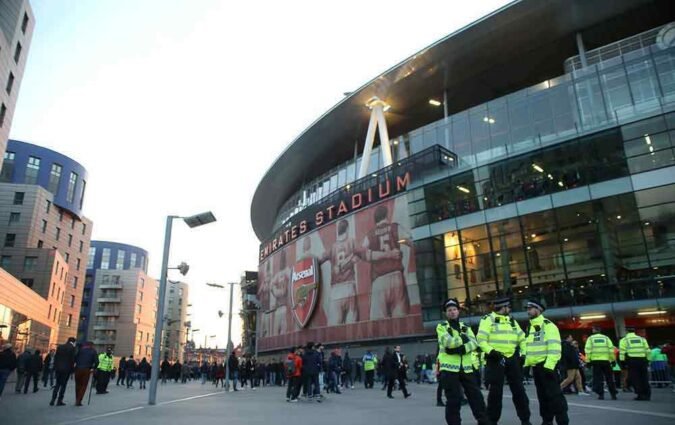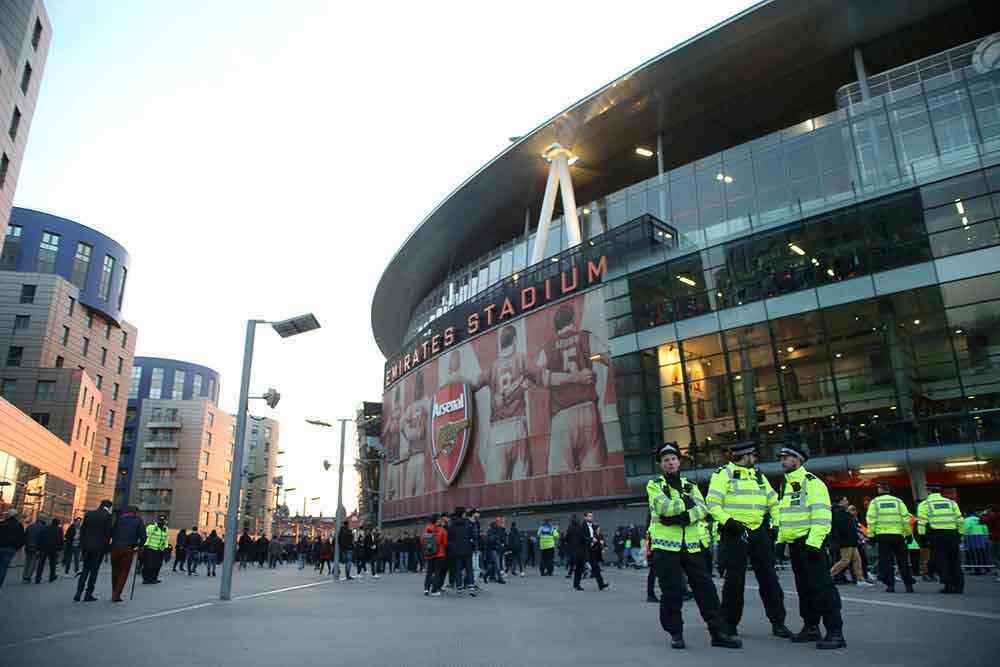What have Gerry Francis, Jacques Santini, Christian Gross, George Graham, Glenn Hoddle, Martin Jol, Juande Ramos, Harry Redknapp, Andre Villas-Boas and Tim Sherwood got in common?
That’s a fairly easy one for Arsenal supporters, and perhaps a little frustrating question for Tottenham supporters. All those men have left Tottenham since Arsene Wenger arrived at Highbury.
In fact I make it that since October 1996, I68 managers have left Premier League clubs, most of them going because he was sacked, although a few resigning in order to take up another job because someone else was sacked.
But what good has this done the clubs? One can certainly argue that Tottenham now have their best manager in many a year; he’s building a good squad, and looks set for the long term. Indeed the only thing that might disrupt his progress is a shortage of funds if, as seems likely, Tottenham go through a few years of privation following the completion of the new stadium, as Arsenal did.
But on the other hand Tottenham’s current incumbent is still working to get Tottenham back to the top four finish that Harry Redknapp achieved. So what has happened between June 2012, when Harry left and now?
Money has been spent on players, money has been spent compensating managers for breach of contract by the clubs (and let us not forget that managers are as entitled to protection of their contractual rights as any employee at any level in England), and then more money is spent on more players as the new man seeks to get the squad the way he likes it.
Since Harry left Tottenham there have been 38 managerial changes in the premier league. They have included the departures of Roberto Di Matteo (Chelsea), Mark Hughes (QPR), Martin O’Neil (Sunderland), Roberto Mancini (Man City), Rafa Benitez (Chelsea), Paolo di Canio (Sunderland), Andre Villas Boas (Tottenham), David Moyes (Man U), Tim Sherwood (Tottenham), Alan Pardew (Newcastle), Harry Redknapp (QPR), Gus Poyet (Sunderland), John Carver (Newcastle), Sam Allardyce (WHU), Nigel Pearson (Leicester), Dick Advocaat (Sunderland), Brendan Rodgers (Liverpool), Tim Sherwood (Villa), and of course José Mourinho (Chelsea)… and that is a very abbreviated list.
Of course some managers do make a difference. Arsene Wenger at Arsenal made an enormous difference. Having come 12th in 1995, and 5th in 1996, Arsene Wenger then took Arsenal to 3rd in 1997 and the Double in 1998, as well as starting a run unprecedented in English football of 18 years in the top four.
But for every managerial change like that there are many many more that don’t work. In point of fact most managerial changes don’t work. They cost the club money (because all managers insist on buying their own players) and they cost the club compensation fees.
Sometimes the changes look good – indeed Mourinho coming to Chelsea was a great success, for one year. He won nothing in his first year, but the league cup and the League in his second. But then we know what happened after that.
Likewise the sacking of Nigel Pearson by Leicester and replacing him by Ranieri looks at the moment like a masterstroke.
But consider this: Liverpool expect to be winning trophies. The whole ethos of Liverpool is that they are a BIG CLUB. Since Benitez left in 2010, Liverpool have had Hodgson, Dalglish, Rodgers and now Klopp as manager and won nothing at all. Not even a league cup. Indeed since last winning the league in 1990, Liverpool have had eight managers. If changing managers was a good way to win a title, surely one of them would have done it by now.
Part of the problem is that Premier League managers hang around for less and less time. Removing Arsene Wenger from the list we see that the average stay of a Premier League manager is now around 1 year 3 months down from 3 years 3 months in 1993.
Indeed in 1993, five top division managers had been in their jobs for five years or more – George Graham, Alex Ferguson, Steve Coppell (Palace), Joe Royle (Oldham) and Brian Clough (Forest).
So when we come to today, with talk of Guardiola going to Man city and Mourinho to Man Utd, we can draw two conclusions.
One is that on the basis of what has gone before, these managerial transfers are more likely not to work, than to work, and that they are more likely to be short term than long term.
Of course Guardiola has been a success so far, winning at Barcelona and Bayern. At Barcelona he won the league each season except one, and the Champions League once. At Bayern he’s won the league each season and the Champions League.
Mourninho gave Chelsea the League and League Cup double as well as two titles in his first appearance at the club, He won the League once with Real Madrid and twice with Inter.
These men are winners. But… they are not winners every single time at every single club. And occasionally they have been helped by circumstance. Guardiola ran the Barcelona B team before being made manager, for example. They have had unlimited money to spend, and they have been gifted huge talent in successful squads. And in Spain and Germany they have been participating in leagues in which the dominant teams are so far ahead of the rest that the team in 6th is often closer to relegation than winning the league.
Guardioloa took over Bayern when they had just completed the treble. When he joined Barcelona he had Xavi, Iniesta and Messi already in the team. True Barcelona finished the season before he joined in 3rd but they did reach the semi-finals of the Champions League.
When Mourinho joined Chelsea he took over a club that in 2012 had won the FA Cup and the Champions League and in 2013 had won the Europa League.
So these men come in to clubs that have success and take the success on. Whether Man U and Man City currently have enough success to give them the basis for further success is hard to say. Perhaps the 2015 calendar year table gives a clue.

Both clubs are near the top – but to win trophies clubs not only have to be good, they have to be better than all the other clubs around them, and at the moment neither Man C nor Man U are marching forwards. They have the money, but football history tells us that it is not always just about the money.
So, will Man U and Man C be the clubs vying for all the trophies if they get their men as managers? Maybe, but given the history of managerial success in the Premier League, the fact that both clubs have a distance to make up, the fact that neither club brings them what they had when they have moved before, and the fact that the Premier League is more competitive than elsewhere, maybe not.
Of course Mourinho has the easier task because he’s managed in England before, but his reputation has taken a dent, and if he and his new employers (whoever they are) really do believe it was not his fault at all, but the players’ fault, and the owner’s fault, we could see some fireworks, no matter what happens.
But here’s one more thing. The League is becoming more balanced, because of the huge amount of new money coming in from the latest media deal. And FFP is still there, even though it doesn’t really matter for most clubs, because of this new money.
However FFP can affect Man C – because their merchandising and selling on of sponsorships is a far smaller money spinner than those of Man U. As a result of this combination of FFP and media money the playing field is a little bit more even. Bringing in the big name manager might work. But it is not assured.
After all, if it were, Mourinho wouldn’t be out of a job, and Chelsea wouldn’t be 19 points behind Arsenal after 19 games.
